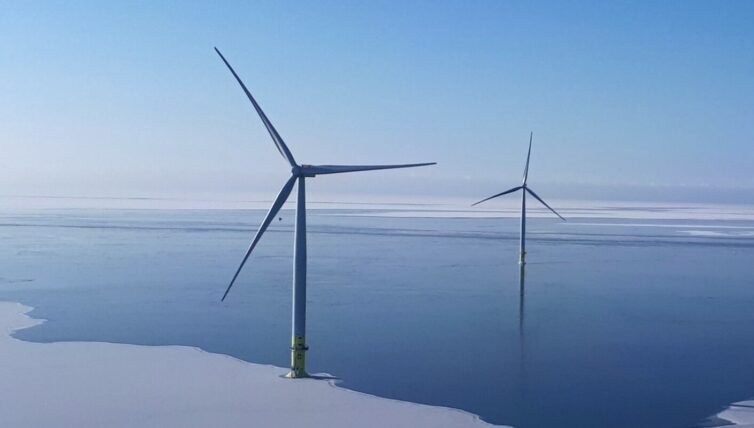
Meet TRAF members: VTT Technical Research Centre of Finland Ltd
VTT is a research institution with expertise in for example energy and ice research. VTT works as the technology partner helping societies and businesses develop and commercialize solutions for change. Principal Scientist Jaakko Heinonen has a vast experience in arctic and cold climate solutions, such as ice-structure interaction. Heikki Rajasalo works as Solution Sales Lead focusing on RDI, business design and commercialization. In this interview we focused on offshore wind as one of the many arctic and marine competencies VTT has.
Why did VTT decide to join TRAF ecosystem?
Thinking of offshore wind especially, this seemed like a good way to cooperate. Since so many interesting players from offshore wind value chain are involved, we wanted to join and take part in developing offshore wind ourselves, too. In TRAF ecosystem we aim at identifying and designing development processes in topics where there still are needs for scientific proof, measurements, or new solutions. On the other hand, we wanted to share and gain knowledge together in the ecosystem.
Besides advancing offshore wind in Finland, VTT wants to be part of discussions and projects in Baltic Sea and other offshore wind growth areas, too. VTT also has expertise regarding the needs in ports and vessel concept development
How do you see VTT’s role in green transition?
VTT’s handprint is defined by strong partnerships. Our role is to support businesses that want to create the change needed and accelerate growth with new tested solutions. Our research aims to help both Finnish and international industries in reaching carbon neutrality.
VTT is the technology partner needed to make sure that the technical solutions are feasible to scale up offshore wind power production in icing conditions. This is done by research, numerical simulations, and experimental testing. Technology is not the bottle neck, and there is a lot of knowledge and experience also from other marine constructions and ice-loads. However, product development is needed to bring reliable technologies to a right scale. We hope to be able to organize a real-life scale demonstration study in Baltic Sea conditions.
VTT is interested in supporting energy transition to renewables in all its forms. However, there are some things that make offshore wind power specifically an interesting part of the energy system from both a more general and a more local perspective. First of all there is huge potential – winds are strong and steady offshore. As the future energy palette must be diverse in order for it to be reliable, offshore wind should be part of that. Locally seen, social acceptance might also be easier to gain offshore: less people and activities are bothered by the energy production far away from land.
What do you bring to the ecosystem?
We bring to the ecosystem our expertise and our capabilities to develop solutions further and produce the information still needed from research. We also bring about our ability to create networks in which public and private sector work together. IceWind is an example of a joint research effort where we identified the need for knowledge in TRAF ecosystem work and then joined forces with others to kick-off a research project.
VTT together with Aalto University and Finnish Meteorological Institute and several company partners has in October 2022 launched a research project called Ice challenges of offshore wind turbines (IceWind). The scope of the two-year project is to do full-scale testing of offshore structure ice-interaction, assess the met-ocean conditions, design of offshore wind turbine foundation and assess on icing on wind turbine blades. The partnering companies are Boskalis Terramare, Skarta, Labkotec, Skyborn Renewables, OX2 and Metsähallitus.